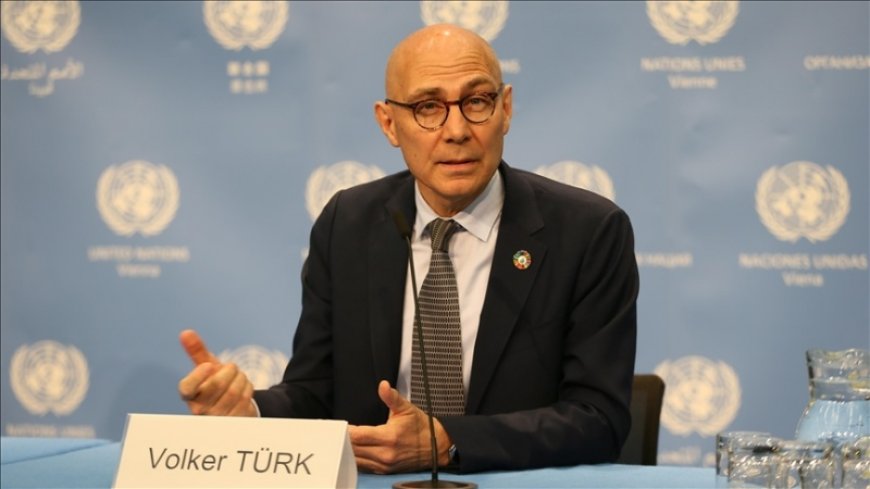UN Warns of Rising Influence of Right-Wing Parties in Europe

Volker Turk, the United Nations High Commissioner for Human Rights, issued a stark warning on Wednesday about the rising influence of right-wing parties across Europe. Turk emphasized that these political movements, with their anti-immigrant and anti-refugee positions, pose a significant threat to human rights and social stability.
Drawing attention to the mistreatment and abuse faced by migrants and asylum seekers, Turk highlighted the troubling resurgence of far-right ideologies. "We must be very vigilant," Turk stated. "History, especially in Europe, teaches us that the dehumanization of others is a harbinger of troubling developments."
Turk's warning comes on the heels of recent electoral victories by far-right parties. Notably, the National Rally (RN) party in France secured more than 33 percent of the vote in the first round of parliamentary elections. The RN, now poised for a majority in the second round on July 17, underscores the growing influence of far-right movements in Europe.
This surge in right-wing popularity is not limited to France. The European Parliament elections last month saw significant gains for radical parties, raising alarms among EU leaders about the future of European integration and unity. The prosperity of far-right movements has become one of the biggest challenges to the EU's integration policies, as these parties often prioritize national sovereignty over collective European interests.
The rise of far-right parties has been attributed to multiple factors, including the ongoing migrant crisis and the influence of former U.S. President Donald Trump's nationalist rhetoric. Trump's policies, which incited nationalist sentiments, have resonated with right-wing factions in Europe, further emboldening their political agendas.
An analysis by Politico highlighted the serious and real threat posed by radical right parties to the EU's foundational values of the rule of law and human rights. The newspaper warned that the results of the European Parliament elections indicate a significant shift in political attitudes across Europe.
The British newspaper Daily Telegraph also discussed the far-right's significant victories, noting the potential implications for countries like Germany, France, and even the UK. The rise of these parties reflects growing public dissatisfaction with traditional political institutions and concerns over social, economic, and security issues.
Analysts believe that the increasing support for radical and right-wing parties is a direct response to the perceived failures of current EU policies. This shift is expected to impact not only internal EU policies but also its stance on international matters.
The growing influence of right-wing parties poses a substantial threat to the European Union's integration efforts. These parties often prioritize national interests over collective EU decisions, particularly in economic, social, and political spheres. Their anti-immigrant and anti-Muslim stances further exacerbate social tensions within European countries.
As the political landscape in Europe continues to evolve, the international community remains watchful. The rise of right-wing parties calls for a reexamination of policies and strategies to ensure the protection of human rights and the promotion of social cohesion across the continent.
Tags:
- European Parliament elections
- Right-Wing Parties
- European citizens
- democratic process
- Democracy Perception Index
- DPI
- public trust
- democratic institutions
- Greece
- France
- Hungary
- rule of law
- European values
- EU budget suspension
- Ukraine war
- democratic sentiment
- media freedom
- government critics
- EU aid
- economic recovery
- migrant crisis
- police brutality
- pension reforms
- public dissatisfaction
- citizen-government disconnect
- radical movements
- anti-democratic movements
- mainstream politics
- extremist groups
- democratic decline
- Western democracy
- liberal democratic identity
- double standards
- public trust
- existential crisis
- European project
- economic inequality
- social injustice
- democratic institutions
- anti-democratic forces
- European democracy.













































